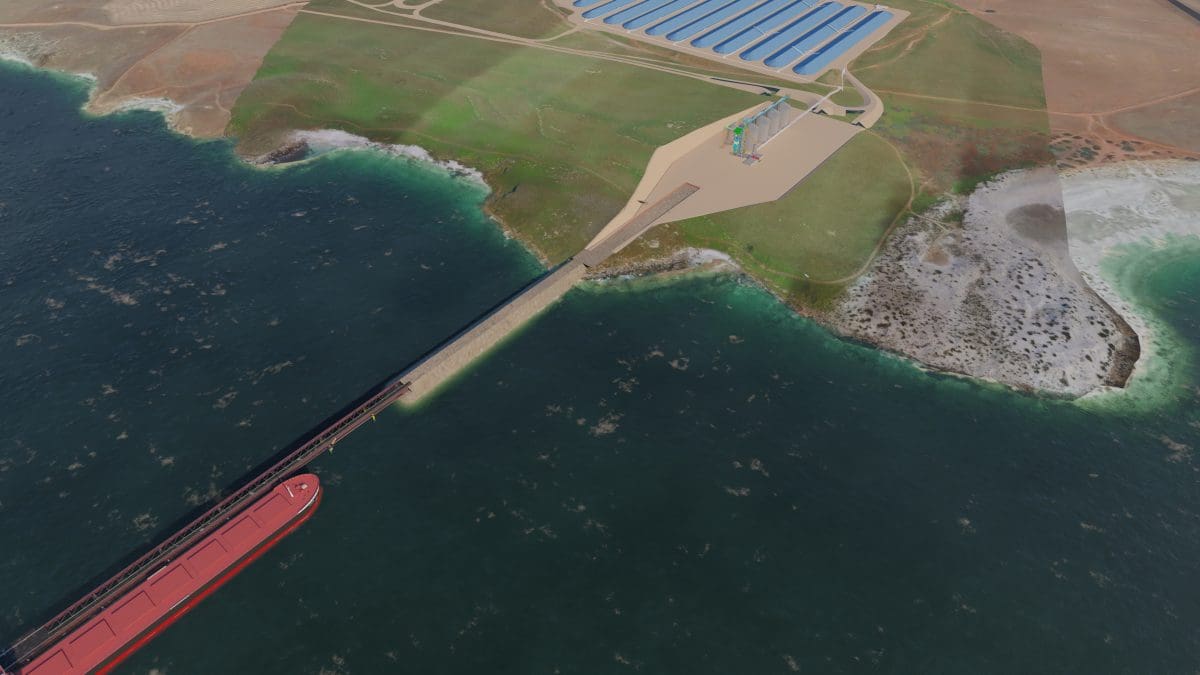
Port Spencer may be exporting hydrogen as well as grain now that additional land has been purchased. Photo: Peninsula Ports
PENINSULA Ports has paved the way for Port Spencer to be developed as a multi-commodity port with the acquisition of an extra 283 hectares of land.
The company is now in discussions with parties about exporting commodities including hydrogen to supplement its grain income.
Port Spencer is located on South Australia’s Eyre Peninsula, and has ruled out iron ore as a commodity it will handle due to the risk of contamination it poses to grain exports.
Earlier this year, Peninsula Ports received a Public Environmental Report (PER) amendment, which removed the storage and export of iron ore from the project and allowed for the potential of other more suitable commodities to be managed alongside grain at the port.
The recently acquired land will now provide the ability to separate commodities and loading to ensure quality products and international certification of the port.
The port’s existing jetty design already allows for independent and separate loading of ships and different commodities.
The announcement follows last month’s release of the South Australian Government’s Hydrogen Export Prospectus which identified Port Spencer as a potential site for exporting 60,000- 250,000 tonnes per annum of green hydrogen from the region.
“The ability of Port Spencer to become a multi-commodity, multi-user would increase South Australia’s export capacity to key markets and provide a significant economic boost to the region creating more local jobs,” Peninsula Ports chief executive officer Greg Walters said.
“Accommodating additional commodities at Port Spencer will help attract new investment into the Eyre Peninsula (and) support diversification of the local economy and long-term growth of the region.”
The current Port Spencer project expects to create up to 150 jobs during construction and a further 20 permanent local operational jobs, including employment opportunities for Barngarla community members.
“Operational staff numbers are expected to further peak at 80 staff during grain harvest.”
Any new commodities would have to go through the normal approvals process before being shipped from the port.
Source: Peninsula Ports



HAVE YOUR SAY